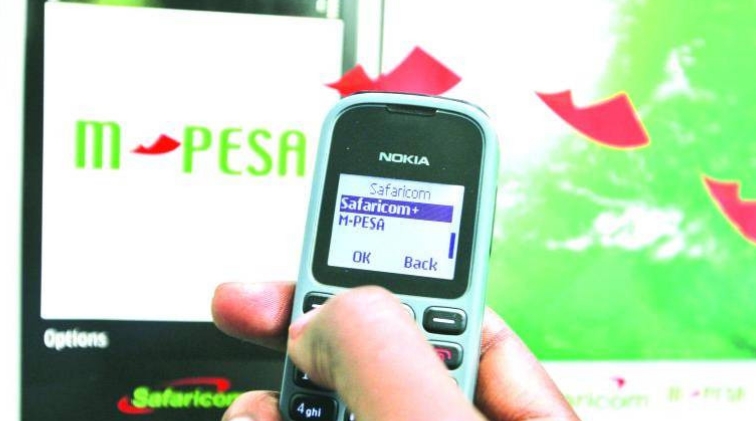Kenya's mobile money ecosystem reached a new milestone with registered accounts hitting 80.82 million in October 2024, up from 75.96 million a year earlier.
At the same time, transaction volumes rose to 2.076 billion and values reached Sh7.24 trillion, marking a 12.1 percent growth.
Safaricom's PLC's Mobile Money Platform M-Pesa maintains market dominance with over 97 percent share, contributing significantly to Safaricom's revenue with Sh77.22 billion in the half-year ending September 2024, driven by a 13.1 percent increase in average revenue per user to Sh389.27.
The growth reflects increased digital payment adoption, with transaction volumes hitting 2.076 billion and peak monthly transfers of Sh790.8 billion in February 2024.
M-Pesa's performance shows strengthening user engagement, with chargeable transactions per active customer rising to 37.37 from 29.87, while its merchant network expanded through Pochi la Biashara, reaching 869,020 tills.
Recent regulatory changes, including removal of inter-platform transfer restrictions between M-Pesa and Airtel Money, aim to further boost mobile money adoption.
Meanwhile, Card payments in Kenya dropped to a six-year low of Sh465.4 billion in the first 10 months of 2024, down from Sh533.4 billion in 2023, as consumers increasingly prefer mobile money and cash transactions.
The shift is evidenced by CBK's FinAccess survey showing point-of-sale card usage at just 1.5% compared to mobile banking apps at 45.7% and USSD at 38.2%.
Daily mobile money usage has more than doubled to 52.6% from 23.6% in 2021, with higher adoption in urban areas (28.5%) versus rural areas (14.3%).
The trend has been supported by regulatory changes, including increased transaction limits for Safaricom, Telkom, and Airtel Kenya, and continues the momentum gained during the Covid-19 pandemic when digital payments were encouraged.
The decline in card payments, coupled with the surge in mobile money adoption, signals Kenya's unique path toward financial digitization that bypasses traditional banking infrastructure.
This "leapfrogging" phenomenon has attracted significant attention from global financial institutions and development partners, with the World Bank and IMF studying Kenya's model for potential replication in other emerging markets.
In other News, Safaricom PLC's newly launched Ziidi Money Market Fund has accumulated Sh2.85 billion in assets under management and attracted over 450,000 users within its first month of operation.
The unit trust product, managed in partnership with Standard Investment Bank and ALA Capital Limited, allows M-PESA users to earn daily interest on their investments.
A money market fund professionally manages a pool of money from various investors. Depending on how well the scheme is doing given the state of the market, the investors receive interest every day.
The fund operates within M-PESA's existing transaction limits of Sh500,000 daily and Sh250,000 per transaction, representing Safaricom's strategic expansion beyond payment services into investment products.
CEO Peter Ndegwa frames Ziidi MMF as part of the company's broader initiative to promote financial wellness, with SIB Founder James Wangunyu emphasizing the fund's potential to deliver competitive returns while supporting Kenya's financial inclusion goals through the bottom-up economic model.
Elsewhere, Safaricom PLC 's M-Pesa is set to integrate with Kenya's PesaLink network, a strategic initiative that has the potential to revolutionize the digital payments ecosystem in Kenya & Africa by connecting the leading mobile money platform with 39 banks nationwide.
The proposed integration by Safaricom and the Kenya Bankers Association (KBA) to the Central Bank of Kenya aims to facilitate direct transactions between M-Pesa users and any bank within the network, eliminating the need for separate agreements.
If approved, this initiative has the potential to significantly lower transaction costs, reducing the current M-Pesa fee of KES 100 for a KES 10,000 transfer to the Pesalink range of KES 30-50.
Finally, Kenya's Treasury is seeking to strip the Central Bank of Kenya (CBK) of its role in selling government bonds and Treasury bills.
Treasury, is proposing that the Public Debt Management Office (PDMO), a Treasury department, takes over the issuance of government securities.
The move, which is likely to face resistance from CBK, aims to reduce the State's borrowing costs below 10 percent and would bring Kenya's system closer to the US model, where the Treasury handles government securities while the Federal Reserve focuses on monetary policy.
As of January 14, Kenya's domestic debt stood at Sh5.89 trillion, with Treasury bonds accounting for 85.25 percent (Sh4.88 trillion) and Treasury bills at 14.75 percent (Sh844.84 billion).
The Treasury plans to elevate the PDMO to a State Department with its own budget and greater autonomy in debt management, including the power to approve or reject loans and determine borrowing costs during primary auctions.
Central Bank of Kenya has already stopped using placing agents for selling government securities, eliminating the 0.15 percent commission previously paid to stockbrokers, custodian banks, and authorized securities dealers.







